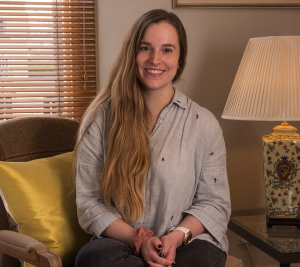It’s completely normal and valid to feel upset, angry or sad when your therapist goes on holiday. It makes sense to feel a sense of loss when our weekly therapy sessions are paused for a couple of weeks (or more!).
The therapeutic relationship is incredibly special and significant—it helps us understand ourselves, make changes in our lives, identify how we feel and react, and explore how we relate to the world, others, and ourselves. So of course, separation can be difficult.
But this uncomfortable feeling isn’t all bad—it means that change is already happening!
So, how do we cope when our therapist goes on holiday?

- Talk about it before they leave
Therapists usually let clients know weeks in advance when they’re taking annual leave. This gives you time to process, and it can become a great opportunity to talk openly about how the break makes you feel.
It might feel awkward at first to admit that separation is difficult, but therapists understand how hard absences can be. You can work together to prepare in advance.
- Do a self-care activity during your usual therapy time
Set aside your regular therapy slot and use that time intentionally. Take yourself to a cosy café and journal, or simply sit with your thoughts. Be kinder and gentler with yourself during this period.
You could also try something new or soothing: go to a spa, take a walk, try a fitness class, or get lost in a good book.
- Make a plan with your therapist
If you know you’ll struggle during their time away, ask your therapist to help you create a coping plan. List some healthy strategies you can use to ground or distract yourself when the discomfort feels like too much.
You might lean into immersive activities—binge your favourite TV show, paint or draw, cook something delicious, play video games, or get absorbed in a novel or comic.
If you are really struggling, you might also need to discuss who you can reach out to and how. That could be an emergency contact, A&E, or a crisis helpline.

- Borrow an object from your therapist’s room (with their permission!)
Sometimes, a transitional object can provide comfort during a distressing absence.
That might be a toy from their sand tray, a small candle, or even a book from their shelf—something symbolic and meaningful to you.
I sometimes let my clients borrow one of my bracelets, for example. When I return, they give it back, and we talk about the comfort it brought them—and how they can continue to carry that feeling forward.
- Just rest
As distressing as it can feel when your therapist goes on holiday, sometimes this is the moment when things are quietly settling inside you.
Therapy and change take time to consolidate. These breaks can help things become clearer and offer space for growth and healing.

- Reach out—and practise self-compassion
If therapy is your main emotional outlet, it’s especially important to stay connected to people who make you feel safe and understood. Reach out to a friend, join a supportive online space, or even just send a message to someone you trust.
At the same time, speak to yourself with kindness. This is a time to soften, not self-criticise. Remind yourself: it’s okay to miss therapy, it’s okay to feel wobbly, and you’re doing the best you can.
- Reflect on your therapy journey so far
A break from sessions can be a powerful time to reflect on how far you’ve come. Revisit past journal entries, therapy notes, or moments of insight. You might be surprised at the progress you’ve made.
You could also write a letter to your therapist—even if you don’t send it. This can help you process your feelings and keep the connection alive internally, reminding you that the work continues, even in their absence.
(Maybe, later, you can read it to them in one of your sessions!)
And some final thoughts:
It’s okay to feel upset when your therapist goes on holiday. But therapy will still be there when they return—and you can keep healing and growing, one step at a time.
Author: Magdalena García
Clinical Psychologist and Psychotherapist





